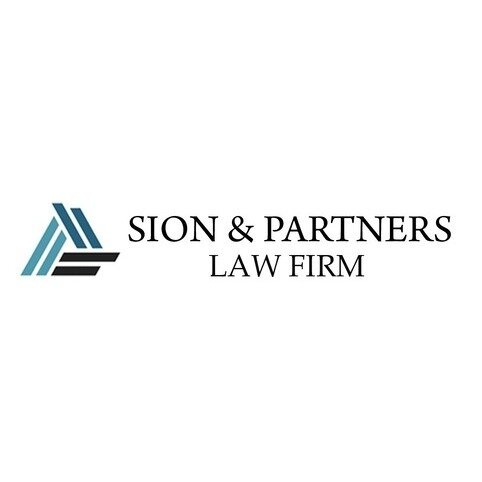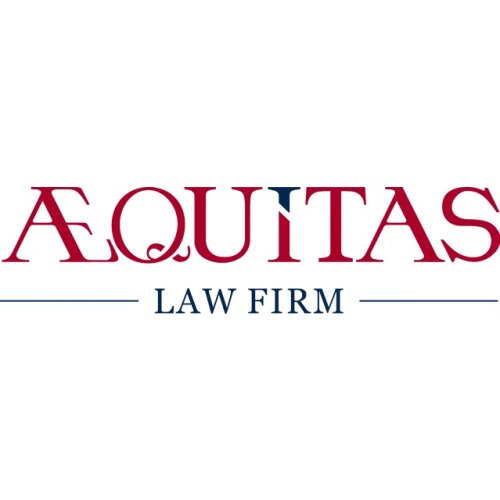Best Sustainable Finance Lawyers in Kazakhstan
Share your needs with us, get contacted by law firms.
Free. Takes 2 min.
Or refine your search by selecting a city:
List of the best lawyers in Kazakhstan
About Sustainable Finance Law in Kazakhstan
Sustainable Finance refers to financial services that integrate environmental, social, and governance (ESG) considerations into business and investment decisions. In Kazakhstan, Sustainable Finance is gaining prominence as the country moves towards a greener, more resilient economy. The legal framework is evolving to support responsible investment, reduction in carbon emissions, and adherence to international sustainability goals. The government and regulatory bodies are developing standards and instruments aimed at mobilizing private and public investments for sustainable development, emphasizing the role of green bonds, ESG reporting, and support for projects benefiting the environment and local communities.
Why You May Need a Lawyer
Navigating the legal landscape of Sustainable Finance in Kazakhstan can be complex. You may need a lawyer in the following situations:
- Launching green bonds or other sustainable financial products and ensuring legal compliance.
- Understanding ESG reporting and disclosure requirements for your business.
- Structuring investments to qualify for green financing incentives.
- Conducting due diligence on sustainable projects to assess legal risks and compliance.
- Obtaining certification for projects or products under local or international sustainable standards.
- Negotiating contracts with sustainability-linked clauses or performance benchmarks.
- Resolving disputes related to ESG claims or greenwashing allegations.
- Staying updated on changes in local and international sustainability regulation affecting your industry.
Local Laws Overview
Kazakhstan is steadily developing its legal framework for Sustainable Finance, harmonizing it with international standards and the country's specific economic context. Key aspects include:
- Astana International Financial Centre (AIFC) Green Finance Regulations: The AIFC has developed regulations specifically for green finance, including standards for green bonds, loans, and project evaluation. The Green Finance Centre under the AIFC offers certification for green projects.
- Environmental Code of Kazakhstan: The updated Environmental Code introduces additional environmental safeguards and principles aligned with ESG requirements, affecting banks, investors, and project developers.
- National Sustainable Development Goals: Kazakhstan's commitment to the United Nations Sustainable Development Goals is reflected in various legal and policy initiatives designed to attract sustainable investment and encourage carbon neutrality by 2060.
- Tax and Incentive Policies: Legislation provides specific tax incentives for green projects and renewable energy investments.
- Disclosure and Reporting: Increasingly, businesses are required to provide ESG disclosures, with guidelines developing rapidly regarding what information must be publicly reported.
Frequently Asked Questions
What is considered a sustainable or green project under Kazakh law?
A sustainable or green project is one that contributes to environmental objectives such as reducing carbon emissions, enhancing energy efficiency, promoting renewable energy, managing natural resources responsibly, or improving community well-being. The legal classification often follows standards outlined by the AIFC Green Finance Centre.
Who regulates sustainable finance in Kazakhstan?
The main regulators are the Astana International Financial Centre (AIFC), the National Bank of Kazakhstan, the Ministry of Ecology and Natural Resources, and sector-specific agencies overseeing projects and financial products.
What are the requirements for issuing green bonds in Kazakhstan?
Green bonds must comply with the AIFC Green Bond Principles, which include transparent project selection, management of proceeds, clear reporting, and use of external reviewers or certifiers to validate that funds support eligible green projects.
Do I need a special license to offer sustainable finance products?
Financial institutions offering sustainable finance products often require existing licensing for their core operations and must comply with additional requirements for disclosing ESG criteria or reporting on the use of proceeds in green projects. Consultation with a lawyer is recommended for clarity.
What ESG reporting standards should I follow in Kazakhstan?
ESG reporting is guided by both national regulations and international frameworks such as the Global Reporting Initiative and the recommendations of the Task Force on Climate-related Financial Disclosures. AIFC guides can also be relevant.
Are there government incentives for investing in sustainable projects?
Yes, the government provides incentives such as tax benefits, grants, and in some cases, subsidies for renewable energy, energy efficiency, and projects recognized as sustainable by authorized bodies.
What risks should I consider before investing in green projects?
Legal risks may include compliance with evolving regulations, potential disputes over green credentials (greenwashing), changes in tax policies, and environmental liabilities. Expert legal advice helps assess and mitigate these risks.
How are disputes about sustainable finance resolved in Kazakhstan?
Disputes can be resolved through civil courts, arbitration under the AIFC, or alternative dispute resolution mechanisms depending on the contractual agreements and the nature of the conflict.
What is greenwashing and how can I avoid it?
Greenwashing is when a company exaggerates or misrepresents its environmental practices or the sustainability of its products. Avoidance involves transparent, accurate reporting, and third-party verification of sustainability claims.
How can I stay updated about changes in sustainable finance laws?
Subscribe to updates from relevant governmental and industry bodies, partner with a law firm specializing in sustainable finance, and participate in industry workshops or seminars.
Additional Resources
The following organizations and resources play an important role in Sustainable Finance in Kazakhstan:
- Astana International Financial Centre (AIFC): Provides regulatory guidance, certification, and training for green and sustainable finance.
- Green Finance Centre (GFC): Certifies projects and instruments as green or sustainable, offering support for market participants.
- Ministry of Ecology and Natural Resources of Kazakhstan: Sets environmental policies aligning with the country's sustainable development.
- National Chamber of Entrepreneurs “Atameken”: Offers advice and support for businesses implementing sustainable practices.
- Kazakhstan Stock Exchange (KASE): Hosts listings of sustainable financial instruments, including green bonds.
- United Nations Development Programme in Kazakhstan: Provides research, technical support, and resources for sustainable projects.
Next Steps
If you require legal assistance in Sustainable Finance in Kazakhstan, consider the following steps:
- Identify your needs, such as launching a green project, compliance advice, or dispute resolution.
- Research law firms or legal consultants with expertise in sustainable finance or ESG issues.
- Gather all related documentation, including business plans, project details, and regulatory correspondence.
- Contact a legal professional for an initial consultation to assess your case, discuss your goals, and evaluate possible legal strategies.
- Stay informed about changes in laws and market practices by joining relevant industry events and subscribing to regulatory updates.
Taking timely legal advice helps you align investments with the latest sustainable finance regulations, minimize risks, and seize new opportunities in Kazakhstan's evolving market.
Lawzana helps you find the best lawyers and law firms in Kazakhstan through a curated and pre-screened list of qualified legal professionals. Our platform offers rankings and detailed profiles of attorneys and law firms, allowing you to compare based on practice areas, including Sustainable Finance, experience, and client feedback.
Each profile includes a description of the firm's areas of practice, client reviews, team members and partners, year of establishment, spoken languages, office locations, contact information, social media presence, and any published articles or resources. Most firms on our platform speak English and are experienced in both local and international legal matters.
Get a quote from top-rated law firms in Kazakhstan — quickly, securely, and without unnecessary hassle.
Disclaimer:
The information provided on this page is for general informational purposes only and does not constitute legal advice. While we strive to ensure the accuracy and relevance of the content, legal information may change over time, and interpretations of the law can vary. You should always consult with a qualified legal professional for advice specific to your situation.
We disclaim all liability for actions taken or not taken based on the content of this page. If you believe any information is incorrect or outdated, please contact us, and we will review and update it where appropriate.
Browse sustainable finance law firms by city in Kazakhstan
Refine your search by selecting a city.











